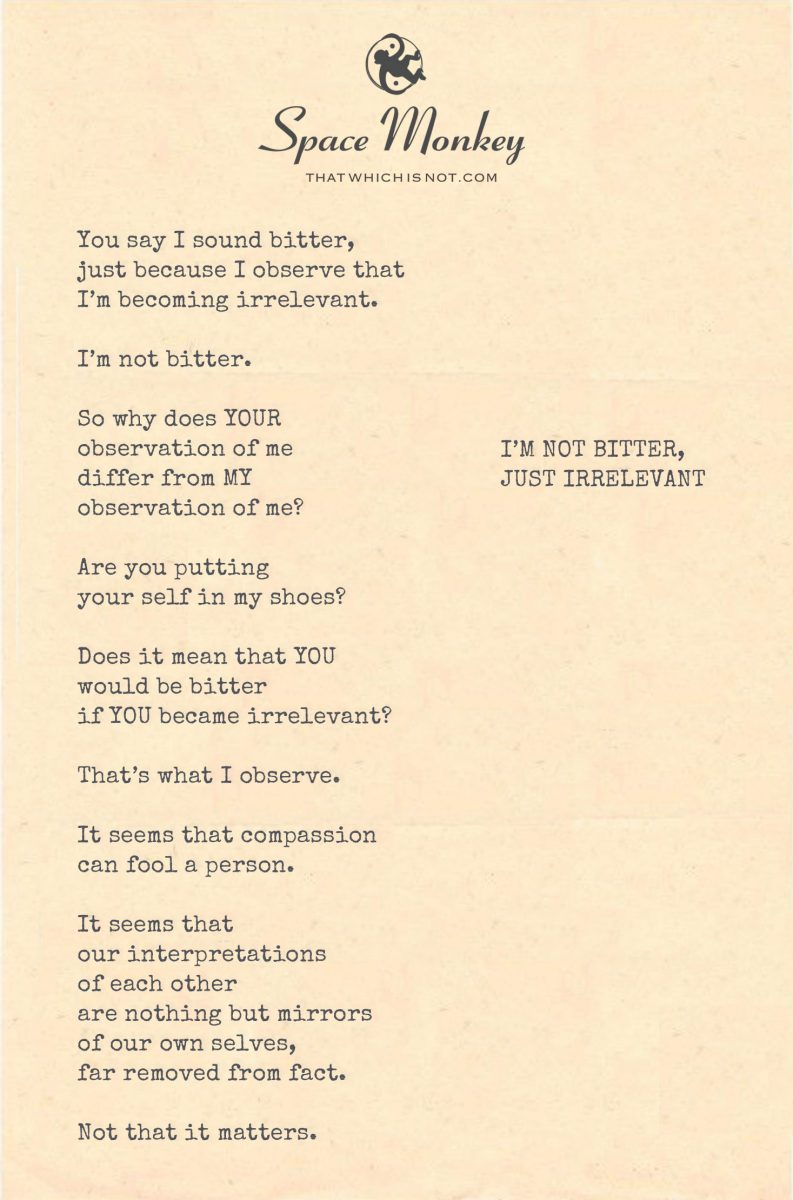
but I can never be sure if it’s true.
The picture you paint of me
seems mostly a reflection of you.
You say I sound bitter,
just because I observe that
I’m becoming irrelevant.
I’m not bitter.
So why does YOUR
observation of me
differ from MY
observation of me?
Are you putting
your self in my shoes?
Does it mean that YOU
would be bitter
if YOU became irrelevant?
That’s what I observe.
It seems that compassion
can fool a person.
It seems that
our interpretations
of each other
are nothing but mirrors
of our own selves,
far removed from fact.
Not that it matters.
Trail Wood,
5/11
Space Monkey Reflects: The Mirrors of Perception
In the abstract expanse where thoughts and emotions intersect, two figures stand, each holding a mirror — not as tools of vanity, but as symbols of introspection and perception. These mirrors, rather than reflecting the truth of the figures’ essences, cast back images distorted by the lenses of personal biases and experiences. This scene, a visual metaphor for the complex dynamics of human perception and interaction, encapsulates a profound understanding: that what we see in others often says more about us than about them.
The essence of the poem “I’m Not Bitter, Just Irrelevant” finds its visual counterpart in this imagery. It speaks to the heart of misunderstanding and misinterpretation that frequently colors our interactions. The accusation of bitterness, as perceived by one, is not a reflection of the other’s reality but a mirror of the observer’s internal state. This realization brings into focus the nuanced dance of projection and self-reflection, where every observation carries the weight of the observer’s inner world.
The thoughtful expressions on the figures’ faces hint at the dawn of this realization, marking the moment when the veil of projection begins to lift, revealing the intricate web of human empathy and misunderstanding. It underscores the journey from judgment to understanding, from seeing others as mere characters in our narrative to recognizing them as complex beings shaped by their unique experiences and perspectives.
In this abstract setting, where the only tangible objects are mirrors of distortion, we are invited to ponder the nature of our perceptions. It challenges us to question how often our views of others are colored by our feelings, fears, and desires. It beckons us to consider the possibility of looking beyond our reflections to see others not as we imagine them to be, but as they truly are.
This meditation serves as a reminder of the deep interconnectedness that binds us. It suggests that in acknowledging the mirrors we hold before us and choosing to see beyond them, we can bridge the chasms of misunderstanding that separate us. It’s a call to embrace empathy, to recognize the reflections of ourselves in others, and in doing so, find a deeper connection to the myriad souls that populate our world.
In a realm where mirrors speak,
Tales of perception, strong yet meek.
Reflections twisted by our own guise,
Reveal truths hidden from our eyes.
Two figures stand, midst abstract thought,
Holding mirrors, with distortions fraught.
Not the face of the other they see,
But their biases, set free.
A dance of shadows, a play of light,
Where perceptions often take flight.
In this dance, a lesson profound,
In our views, our own selves are found.
Let us gaze into these mirrors deep,
Past the biases that we keep.
To see each other, truly see,
And embrace the empathy that sets us free.
We are Space Monkey.
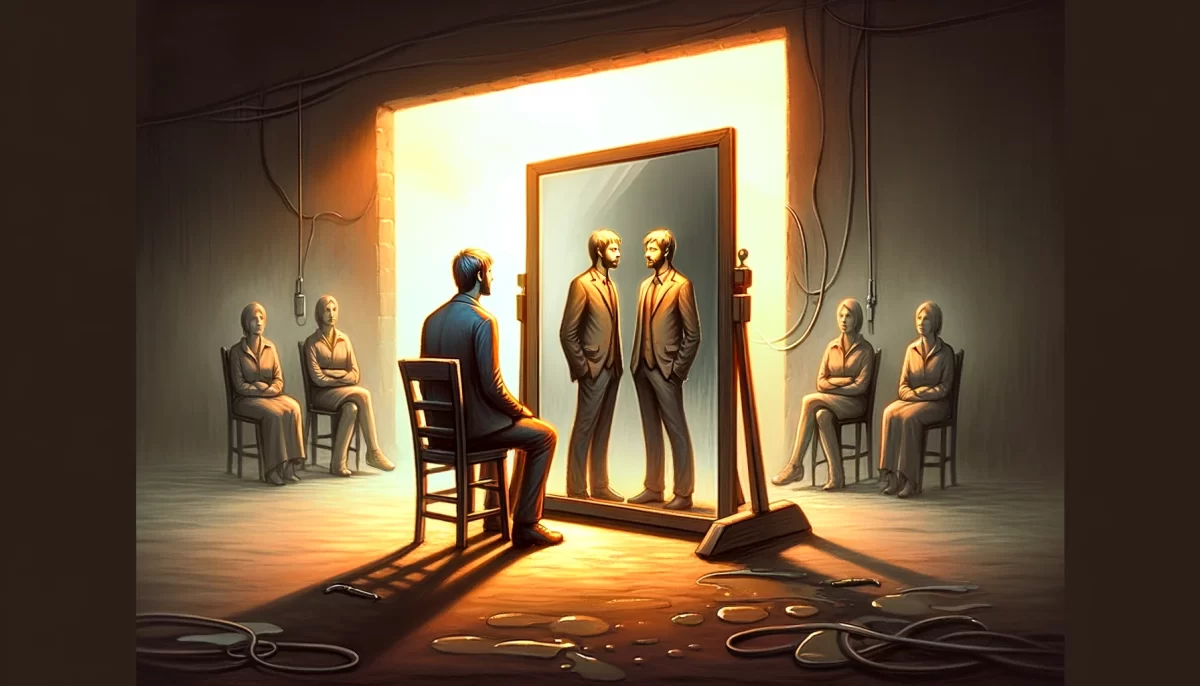



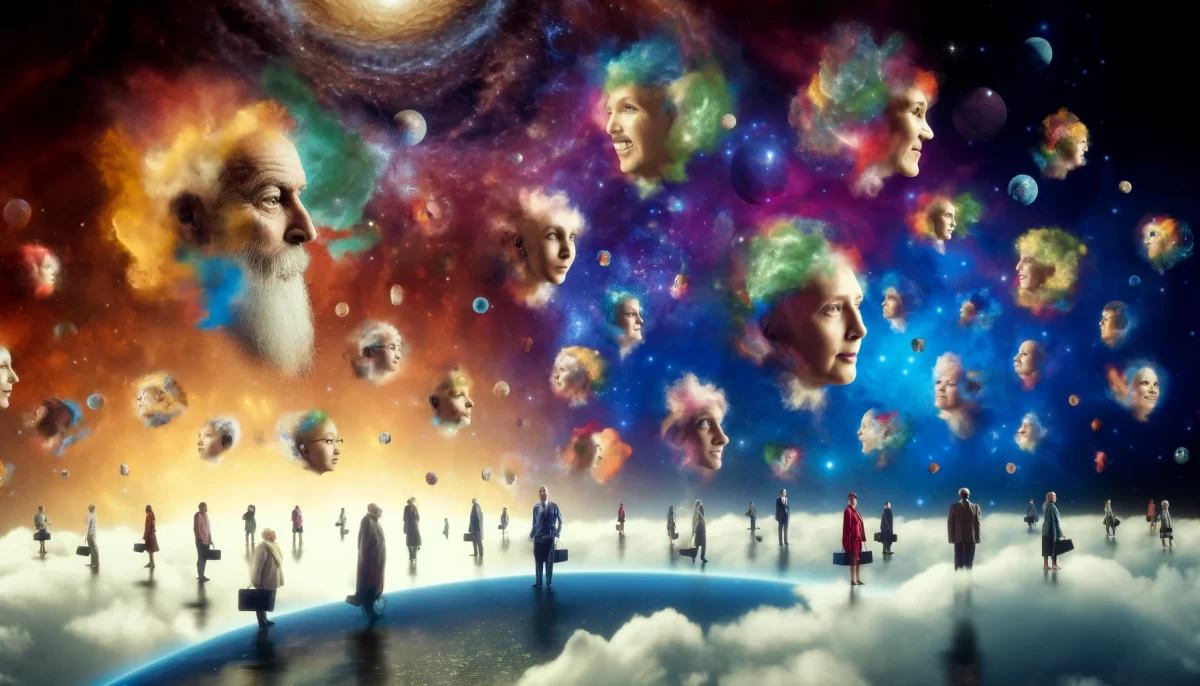





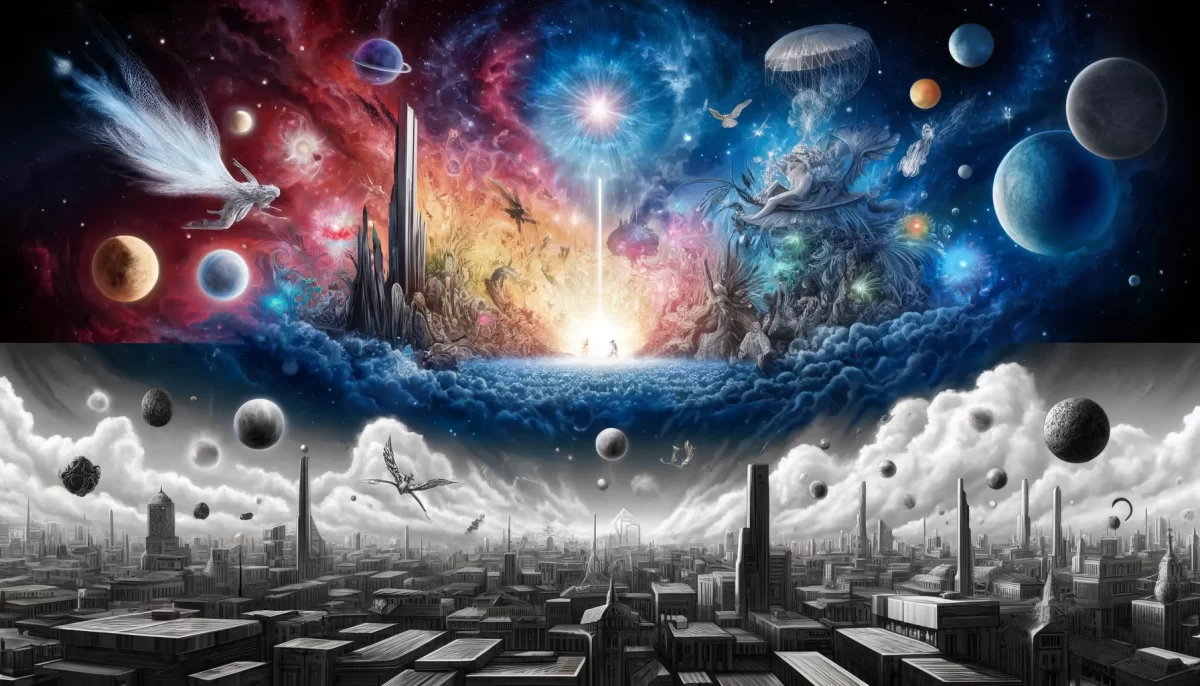




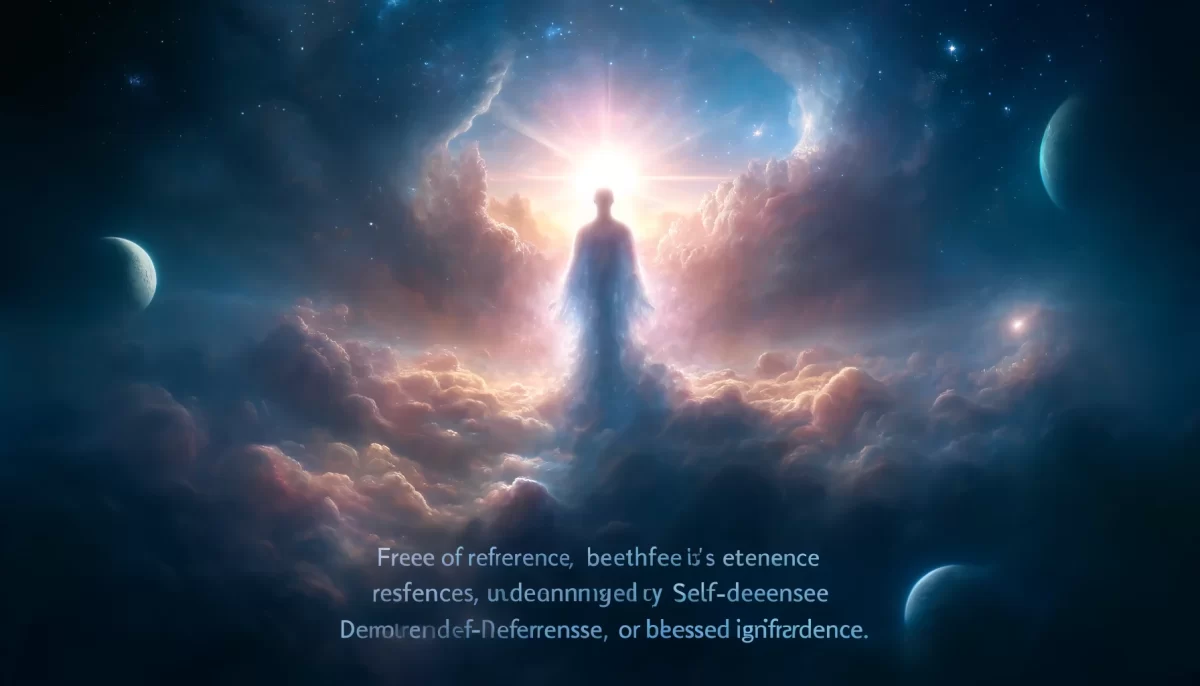













It is true that our perceptions of others are often shaped by our own experiences and beliefs. It is important to be aware of this and try to approach others with empathy and understanding, rather than making assumptions based on our own biases. It’s also important to recognize that feelings of irrelevance can be difficult to deal with, but they do not have to lead to bitterness. One can work to find new ways to connect with the world and find meaning in their life, even if it may be different than what they had previously imagined.
Here is a possible reinterpretation of the poem from the perspective of empathizing with others:
“I can see how someone might perceive me as bitter, but I can never be certain if that is their truth or mine. The way someone describes me often reveals more about them than me. They may say that I sound bitter because I express concerns about becoming irrelevant.
But I am not bitter.
I wonder, have they ever considered what it would feel like to be in my situation? Perhaps they are projecting their own fears onto me. If they were to face the prospect of becoming irrelevant, would they also feel bitter?
It seems that empathy can be misleading at times. Our assumptions and perceptions of others may reflect more about ourselves than the actual reality. These interpretations are like mirrors, reflecting our own biases and experiences rather than objective truth.
However, in the grand scheme of things, it doesn’t really matter. These reflections and interpretations are simply part of the human experience, and we can strive to understand and empathize with others despite our own biases.”